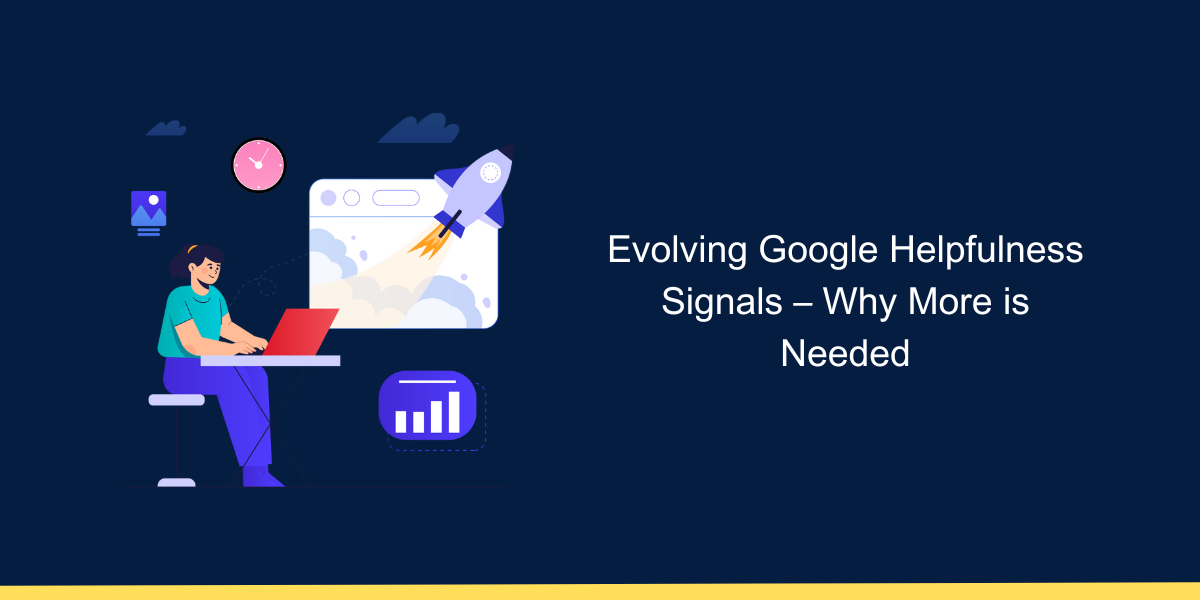
Google might adjust the helpful content signals to allow new pages to rank better. This could explain why some sites need to see improvements.
Google’s John Mueller suggested potential changes to sitewide helpful content signals to help new pages rank. However, there are reasons to believe that even if these changes are implemented, they may not be sufficient to provide the desired improvements.
Helpful Content Signals
Google’s Helpful Content Signals, or the Helpful Content Update (HCU), were initially introduced as a site-wide signal in 2022. This meant that if a site were classified as unhelpful, it would be unable to rank, regardless of whether some of its pages were helpful. Recently, the signals associated with the Helpful Content System have been integrated into Google’s core ranking algorithm, generally shifting them to page-level signals, with some exceptions.
Google’s documentation advises:
“Our core ranking systems are primarily designed to work on the page level, using a variety of signals and systems to understand the helpfulness of individual pages. We do have some site-wide signals that are also considered.”
There are two critical takeaways from this:
- There is no longer a single system for determining helpfulness; it is now a collection of signals within the core ranking algorithm.
- While the signals are primarily page-level, site-wide signals can still impact overall rankings.
Some publishers have noted that the site-wide effect is hindering the ability of new, helpful pages to rank, and John Mueller from Google has offered some hope for improvement.
Suppose Google follows through with adjusting the helpfulness signals to allow individual pages to rank better. This change may not significantly impact many websites, publishers, and SEOs currently suffering from site-wide helpfulness signals.
Publishers Express Frustration With Sitewide Algorithm Effects
A user on X (formerly Twitter) shared their frustration:
“It’s frustrating when new content is also being penalized without having a chance to gather positive user signals. I publish something, it goes straight to page 4, and stays there, regardless of any articles on the location.”
Another user pointed out that helpfulness signals are truly page-level. Theoretically, the more helpful pages should start ranking better, but that’s not happening.
John Mueller Offers Hope
Google’s John Mueller responded to a query about sitewide helpfulness signals suppressing the rankings of new, helpful pages and later hinted at potential changes to how these signals are applied sitewide.
Mueller tweeted:
“Yes, and I imagine for most sites strongly affected, the effects will be site-wide for the time being, and it will take until the next update to see similar strong effects (assuming the new state of the site is significantly better than before).”
Possible Change to Helpfulness Signals
Mueller followed his tweet by saying that the search ranking team is working to surface high-quality pages from sites that may contain strong negative sitewide signals indicative of unhelpful content, potentially relieving some sites burdened by these signals. He tweeted:
“I can’t make any promises, but the team working on this explicitly evaluates how sites can/will improve in Search for the next update. It would be great to show more users the content folks have worked hard on and where sites have taken helpfulness to heart.”
Why Changes to Sitewide Signal May Not Be Enough
Google’s Search Console informs publishers about manual actions but doesn’t specify when rankings drop due to algorithmic issues like helpfulness signals. Publishers and SEOs can’t definitively “know” if these signals affect their sites. Since the core ranking algorithm contains hundreds of signals, it’s essential to consider various factors that might impact search visibility after an update. Here are five examples of changes during a broad core update that can affect rankings:
- Query Understanding: Changes in how a query is understood can affect which sites rank.
- Quality Signals: Adjustments in quality signals can influence rankings.
- Search Trends: Rankings may shift in response to evolving search trends.
- Competitor Improvements: A site may lose rankings because a competitor enhanced their site.
- Infrastructure Changes: Modifications to accommodate more AI on the back end can impact rankings.
Many factors can influence rankings before, during, and after a core algorithm update. If rankings don’t improve, it may be necessary to consider that a knowledge gap hinders the solution.
If you still need help, consider checking out our monthly SEO packages and let the experts help you.

